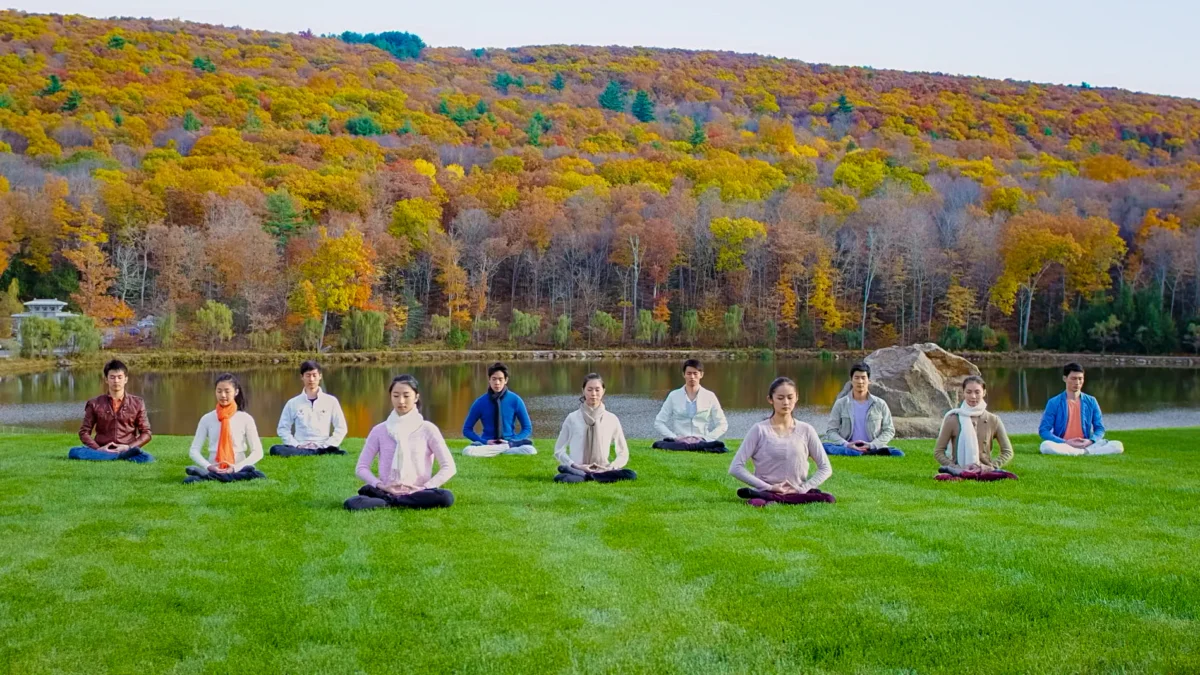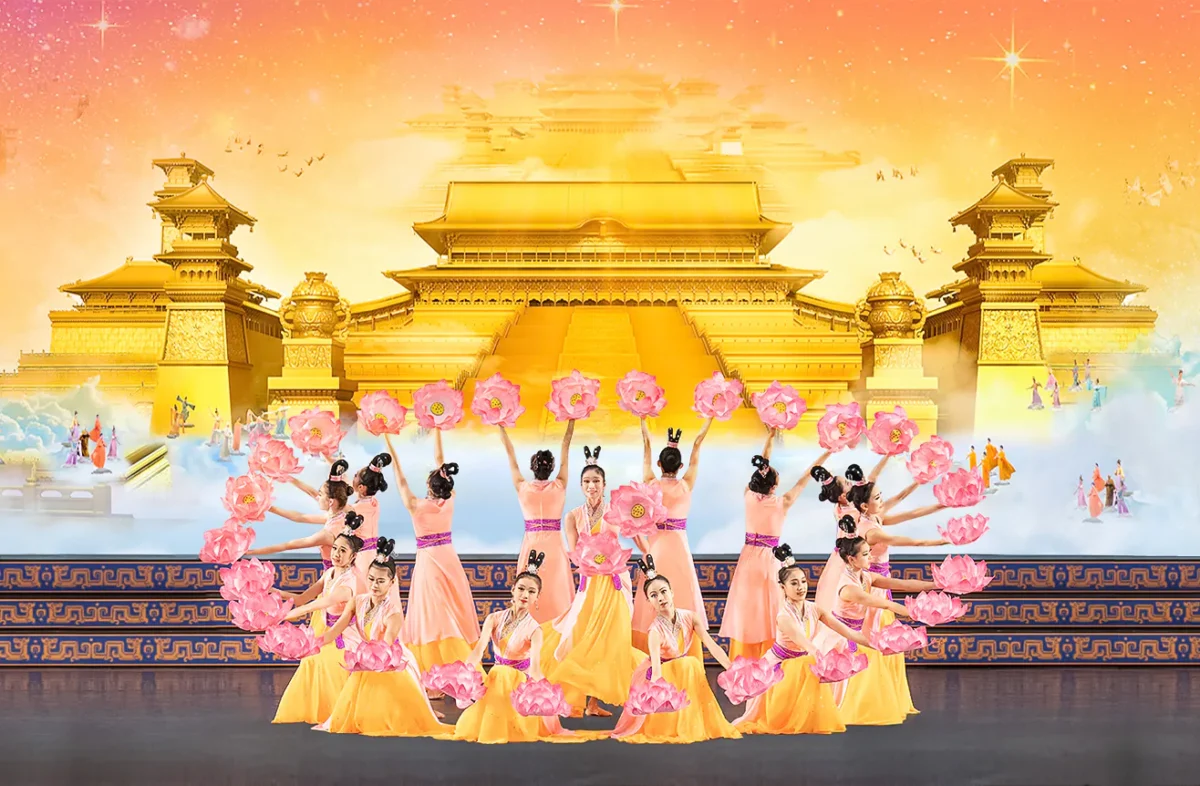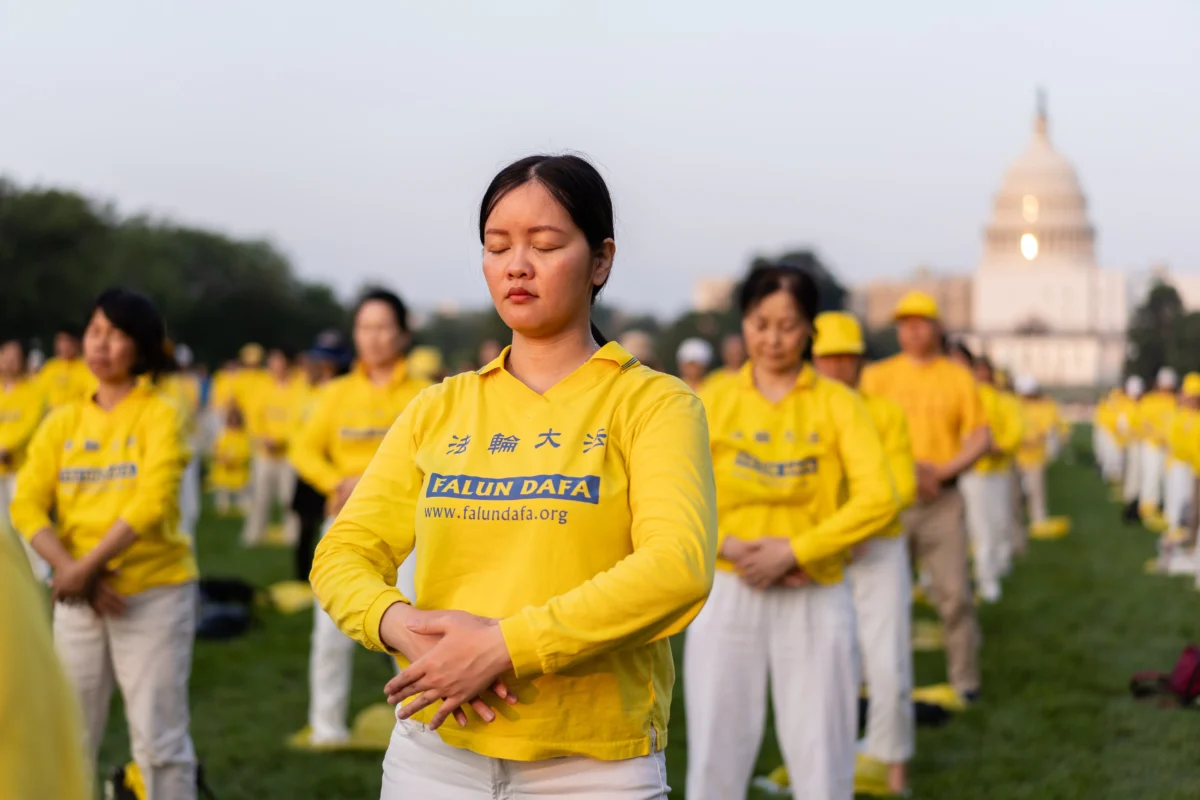NEW YORK—A former musician with Shen Yun Performing Arts who’s been featured as a critical voice against the company in several New York Times articles, has come forward to set the record straight.
The way the articles come across creates a skewed perspective and impacts he considers detrimental, he said, noting that when he was interviewed, the New York Times reporters appeared to approach the story with prejudice.
Shen Yun is a New York-based classical Chinese dance and music company founded in 2006 by practitioners of Falun Gong, a spiritual practice brutally persecuted by the Chinese communist regime.
The company’s eight dance troupes and orchestras perform to high acclaim on some of the world’s most prestigious stages in the world each year under the tagline, “China before communism.”
Some Shen Yun dance pieces also portray the persecution of Falun Gong in China.
Over the past five months, The New York Times has published a series of articles that feature some former Shen Yun performers complaining about pay, workload, and conditions.
The latest article heavily focuses on young artists who tour with Shen Yun as part of their studies at two affiliated religious schools, Fei Tian College and Fei Tian Academy of the Arts.
The article featured prominently violinist Eugene Liu, who left Shen Yun in 2017, as raising a concern over how much the student artists are paid.
After the article was published, however, Liu spoke with The Epoch Times and made a series of posts on X, saying it’s not accurate to compare the stipend he received as a student performer with a regular wage.
“A better comparison exists in the collegiate sphere, where student-athletes (most of whom are on full scholarships) are not paid to play,” he said in one post on social media platform X, noting that Fei Tian students also receive full scholarships and, just like student athletes, draw additional value from the practical experience.
“I attribute my post-Shen Yun artistic successes to the invaluable performing opportunities I received from 2015 to 2017,” he wrote on X.
Shen Yun representatives previously stated that in addition to the scholarship and any stipend the artists receive, students also have all tour expenses covered, including some recreational activities.
“I am no longer performing with Fei Tian and Shen Yun,” Liu added in subsequent posts, “but can say my time there was nothing but positive. Because of the wholesome environment that is fostered, I have been able to avoid habits that have plagued many people my age, including internet and gaming addiction, as well as rampant substance abuse. … I never felt deprived of anything material, and crucially, the mission of Shen Yun fed me spiritually.”
Liu primarily came forward because he was concerned that the New York Times articles would have the effect of undermining Shen Yun’s efforts to counter the persecution of Falun Gong, he told The Epoch Times.

“That’s what the New York Times article is doing. It fuels persecution by trying to, I guess you can say, take down [Shen Yun],” he said.
His impression was that the New York Times reporters, Nicole Hong and Michael Rothfeld, were approaching Shen Yun with the notion that it’s something “sinister.”
“It’s kind of hard to convince people who are already thinking that. You can say they’ve been influenced, brainwashed. And if they’re reporting and that’s their perspective, I think it is more volatile and produces more volatile outcomes,” he said.
Hong, when interviewed about the articles by her newspaper, said that she didn’t know much about Shen Yun before she and Rothfeld were approached by an individual who claimed to have insider information about Shen Yun and introduced them to a former performer.
It’s not clear who the individual was. But a Chinese-American man known for unhinged anti-Falun Gong comments on social media spoke to some of the same former performers on his YouTube channel and later took credit for introducing the reporters to “at least the initial” former performers with grievances against Shen Yun.

Last year, the FBI issued a warning to law enforcement that the man was possibly “armed and dangerous” after he was spotted near the Shen Yun campus in upstate New York. He was later arrested and charged for possession of illegal firearms.
Several whistleblowers inside the Chinese Communist Party (CCP) security apparatus disclosed earlier this year that the regime is using the Chinese-American man, other social media influencers, as well as Western media more broadly to wage a smear campaign against Falun Gong and Shen Yun. One of the goals of the campaign is to create allegations that would prompt U.S. authorities to investigate Shen Yun, they said.
Spirituality vs ‘Cynicism’
Liu, as well as dozens of other current and former Shen Yun artists The Epoch Times spoke to, emphasized the importance of spiritual beliefs for the performers.
Many Shen Yun artists practice Falun Gong and said they look to its principles of truthfulness, compassion, and forbearance to improve their character as well as their art. In addition, the traditional Chinese culture Shen Yun portrays is intertwined with spiritual elements, particularly from Buddhism and Taoism, they said.

“We had spiritual motivations,” Liu said.
“So it wasn’t just like we were there to, for some people, to make money, for some people to see the world, for some people to get performing experience. None of that was the most important thing. The most important thing was our contribution to the spiritual goal.”
Liu said his goal consisted of two parts: One was to counter the persecution of Falun Gong and the other was related to Falun Gong’s emphasis on self-improvement or “cultivation.”
“We’re doing something that we feel makes us better through our own spiritualities in cultivation. So it wasn’t a normal, standard company with standard performing goals,” he said.

He said he spoke to Hong and Rothfeld openly about the spiritual aspects of Fei Tian campus life, but felt they weren’t open-minded toward them.
“They come from the perspective of cynicism, maybe, and they’re trying to put the pieces together from that framework, as opposed to at least a clean slate,” he said.
The New York Times articles repeatedly played on the CCP propaganda trope portraying Falun Gong as a doomsday cult. Never once have they disclosed, however, that Falun Gong practitioners explicitly reject such a belief.
In one instance, Hong appeared to insinuate this point, saying that a Shen Yun show she attended included a scene where a natural disaster decimated a Chinese city. What she omitted was that the scene ended with a divine intervention reversing the disaster—the opposite message of what she suggested.
“There’s a lot of things that they would conveniently leave out,” Liu said.
Maybe the reporters thought that including such information was unnecessary, he said, “but from the perspective of the performers and the operation through the company, it’s pretty important that they don’t leave these things out, because it gives people a very skewed perspective.”
From The Epoch Times


